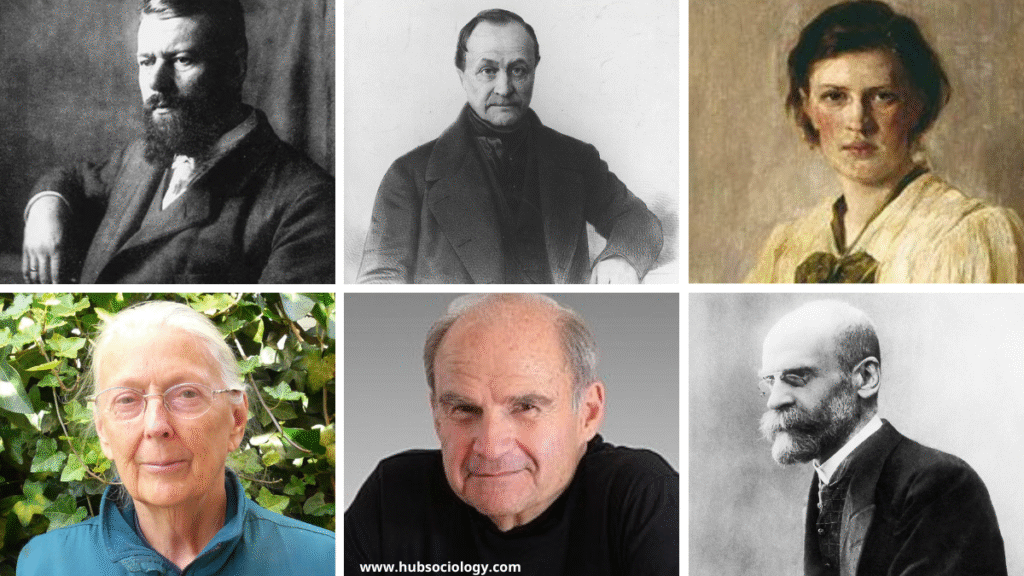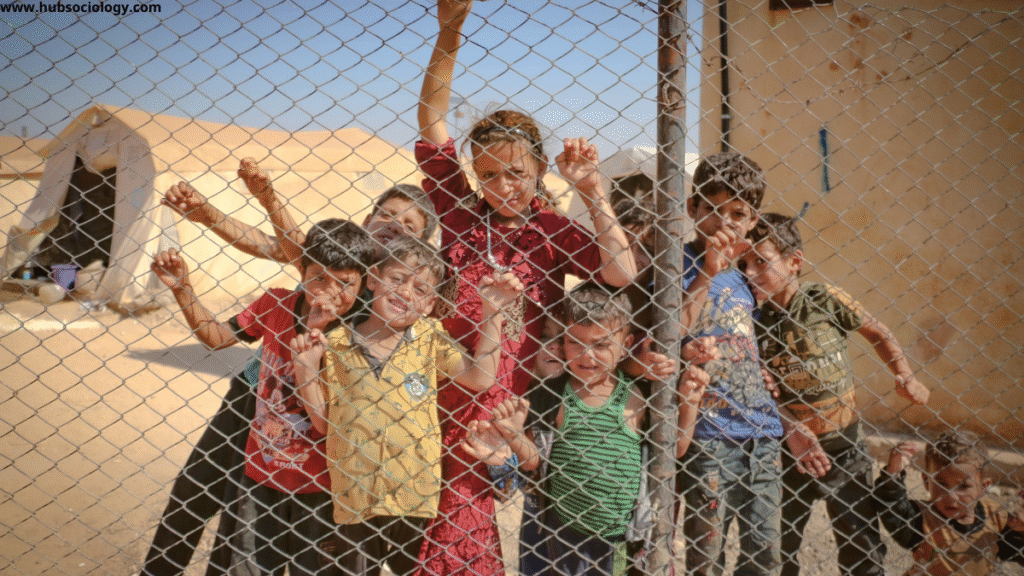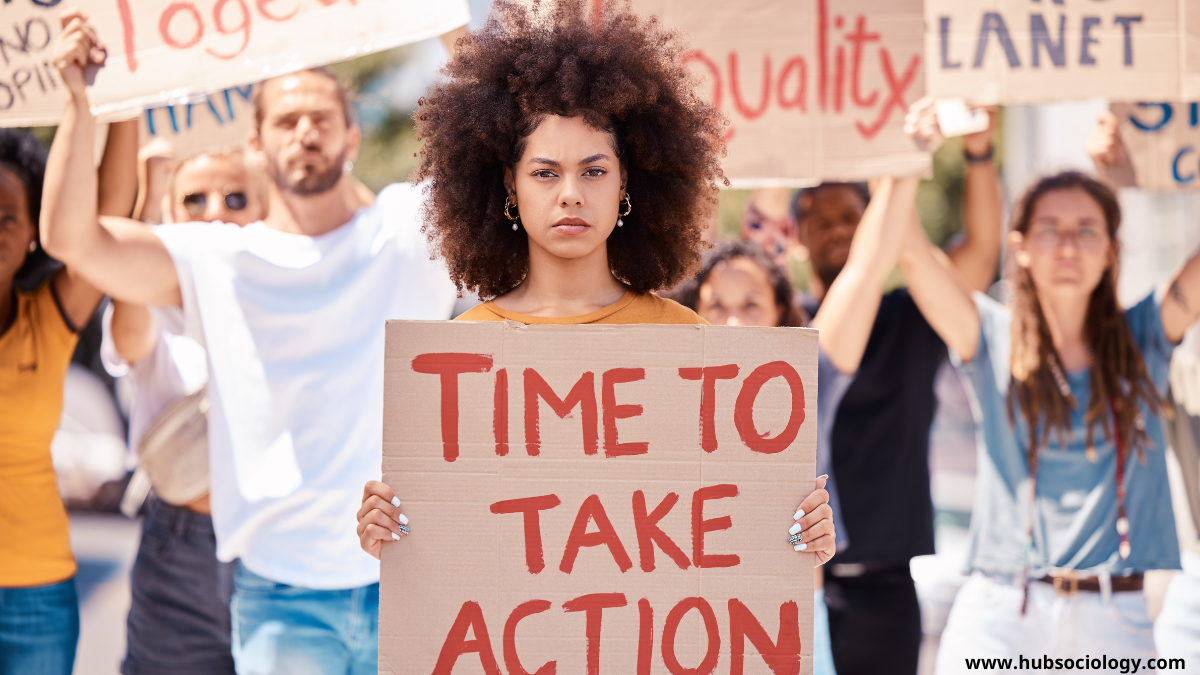Introduction on Conflict Theory in Sociology
Conflict theory is one of the major sociological perspectives that examines how power dynamics, social inequalities, and competition shape society. Rooted in the works of Karl Marx, conflict theory emphasizes the role of coercion and domination in maintaining social order, rather than consensus or harmony. This perspective highlights the struggles between different social groups—such as the rich and the poor, men and women, or racial and ethnic groups—over limited resources and opportunities.
In this article, we will explore the foundational concepts of conflict theory in sociology, its key thinkers, applications in modern sociology, criticisms, and its relevance in understanding contemporary social issues.

Table of Contents
The Foundations of Conflict Theory in Sociology
1. Karl Marx and the Origins of Conflict Theory
Conflict theory finds its roots in the works of Karl Marx (1818–1883), who analyzed the capitalist system and its inherent inequalities. Marx argued that society is divided into two primary classes:
- The Bourgeoisie (Capitalist Class): Those who own the means of production (factories, land, businesses).
- The Proletariat (Working Class): Those who sell their labor for wages.
Marx believed that capitalism creates an exploitative relationship where the bourgeoisie extract surplus value from the proletariat, leading to class conflict. He predicted that this conflict would eventually result in a proletarian revolution, overthrowing capitalism and establishing a classless, communist society.
2. Max Weber’s Contributions
While Marx focused primarily on economic class struggles, Max Weber (1864–1920) expanded conflict theory to include other forms of inequality, such as:
- Status (Prestige): Social honor or respect tied to one’s position in society.
- Power (Political Influence): The ability to impose one’s will despite resistance.
Weber argued that conflicts arise not just from economic disparities but also from struggles over social status and political power. His multidimensional approach provided a more nuanced understanding of social stratification.
3. Later Developments: C. Wright Mills and Ralf Dahrendorf
In the 20th century, sociologists like C. Wright Mills (1916–1962) and Ralf Dahrendorf (1929–2009) further developed conflict theory.
- Mills introduced the concept of the “Power Elite,” arguing that a small group of corporate, political, and military leaders dominate society, marginalizing the masses.
- Dahrendorf emphasized that conflicts are inherent in all social structures due to authority relations, not just economic class struggles.
Key Concepts in Conflict Theory in Sociology
1. Social Inequality and Power Struggles
Conflict theorists argue that society is structured in ways that benefit the powerful while disadvantaging others. Institutions like education, religion, and the legal system often reinforce existing inequalities.
2. Dominance and Coercion
Unlike functionalism, which sees society as stable and cooperative, conflict theory posits that social order is maintained through domination—by laws, norms, and ideologies that favor the ruling class.
3. False Consciousness and Ideological Control
Marx introduced the idea of false consciousness, where the working class is misled into accepting ideologies that justify their oppression (e.g., the belief that hard work alone leads to wealth). The ruling class uses media, education, and religion to perpetuate these beliefs.
4. Social Change Through Conflict
Conflict is seen as a driving force for social change. Movements like labor unions, civil rights activism, and feminist struggles exemplify how oppressed groups challenge power structures to achieve equality.

Applications of Conflict Theory in Modern Sociology
1. Economic Inequality and Class Conflict
Today, conflict theory explains the growing wealth gap, where the top 1% control a disproportionate share of resources. Movements like Occupy Wall Street (“We are the 99%”) reflect class-based grievances against corporate greed.
2. Racial and Ethnic Conflict
Conflict theory highlights systemic racism, where institutions (police, courts, schools) disproportionately target minorities. The Black Lives Matter movement is a response to racial oppression and police brutality.
3. Gender Inequality and Feminist Theory
Feminist conflict theorists argue that patriarchal systems maintain male dominance. Issues like the gender pay gap, workplace discrimination, and domestic violence are seen as results of power imbalances.
4. Education and Cultural Capital
Pierre Bourdieu expanded conflict theory by introducing cultural capital—the idea that schools favor the knowledge and behaviors of the elite, disadvantaging working-class students. Standardized testing and college admissions often reinforce these inequalities.

5. Political and Global Conflicts
Conflict theory also examines imperialism, war, and global inequality. Wealthy nations exploit poorer ones through economic policies, military interventions, and corporate dominance (e.g., sweatshops, resource extraction).
Criticisms of Conflict Theory in Sociology
While conflict theory provides valuable insights, it has faced several criticisms:
- Overemphasis on Conflict: Critics argue that it neglects cooperation and consensus in society (as seen in functionalism).
- Economic Determinism: Marx’s focus on class struggle may overlook other forms of inequality (race, gender, religion).
- Pessimistic View: Some argue that conflict theory portrays society as inherently oppressive, ignoring progress and reforms.
- Lack of Empirical Evidence: Some claims (e.g., inevitable revolution) have not materialized as predicted.
Relevance of Conflict Theory Today
Despite criticisms, conflict theory remains crucial for analyzing:
- Corporate Power: The influence of big tech, lobbying, and monopolies.
- Social Movements: Climate activism, LGBTQ+ rights, and anti-war protests.
- Global Exploitation: Neocolonialism, migrant labor abuses, and economic sanctions.
Conclusion on Conflict Theory in Sociology
Conflict theory offers a critical lens for understanding power struggles, social inequalities, and systemic oppression. From Marx’s class analysis to modern applications in race, gender, and global politics, this perspective continues to shape sociological thought. While it has limitations, its emphasis on challenging unjust structures makes it essential for advocating social justice and equity.

By studying conflict theory, we gain tools to question dominant narratives, recognize hidden power dynamics, and work toward a more equitable society.
Do you like this this Article ? You Can follow as on :-
Facebook – https://www.facebook.com/hubsociology
Whatsapp Channel – https://whatsapp.com/channel/0029Vb6D8vGKWEKpJpu5QP0O
Gmail – hubsociology@gmail.com
Topic Related Questions on Conflict Theory in Sociology
5-Mark Questions on Conflict Theory in Sociology (Short Answer)
- Define Conflict Theory in sociology.
- Who is considered the founder of Conflict Theory?
- What are the two main classes in Marx’s Conflict Theory?
- How does Max Weber’s view of conflict differ from Karl Marx’s?
- What is “false consciousness” in Marxist theory?
- Name one modern social movement that aligns with Conflict Theory.
- How does Conflict Theory explain education inequality?
- What is the role of the “Power Elite” according to C. Wright Mills?
- Give an example of gender conflict in society from a Conflict Theory perspective.
- Why do conflict theorists criticize capitalism?
10-Mark Questions on Conflict Theory in Sociology (Brief Essay/Explanation)
- Explain Karl Marx’s concept of class struggle with an example.
- Discuss how Conflict Theory views social institutions like religion and education.
- Compare and contrast Marx’s and Weber’s perspectives on social conflict.
- How does Conflict Theory explain racial discrimination in modern society?
- Analyze the role of ideology in maintaining power, according to Conflict Theory.
- What is “cultural capital,” and how does it reinforce inequality in education?
- Discuss the relevance of Conflict Theory in understanding global economic inequality.
- How does the feminist perspective use Conflict Theory to explain gender oppression?
- Critically evaluate the limitations of Conflict Theory in explaining social stability.
- Explain how Conflict Theory applies to labor movements and worker exploitation.
15-Mark Questions on Conflict Theory in Sociology (Long Essay/Critical Analysis)
- “Conflict Theory is more relevant today than ever.” Discuss with reference to contemporary social issues.
- Critically analyze Marx’s theory of class conflict and its applicability in the 21st century.
- How does Conflict Theory explain systemic racism and police brutality? Provide examples.
- Examine the role of media and ideology in sustaining capitalist domination, according to Conflict Theory.
- Compare Conflict Theory with Functionalism in explaining social order and change.
- Discuss how economic globalization reflects the principles of Conflict Theory.
- “The education system reinforces social inequality.” Evaluate this statement using Conflict Theory.
- How do modern protest movements (e.g., Black Lives Matter, #MeToo) align with Conflict Theory?
- Assess the strengths and weaknesses of Conflict Theory in understanding power dynamics in society.
- “Capitalism thrives on exploitation.” Critically discuss this statement from a Conflict Theory perspective.
